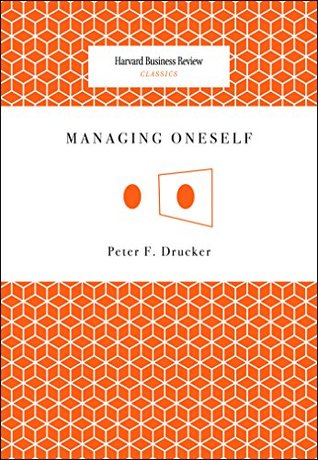More on this book
Community
Kindle Notes & Highlights
Read between
April 26 - June 2, 2018
History’s great achievers—a Napoléon, a da Vinci, a Mozart—have always managed themselves.
Most people think they know what they are good at. They are usually wrong. More often, people know what they are not good at—and even then more people are wrong than right.
And yet, a person can perform only from strength.
One cannot build performance on weaknesses, let alone on something ...
This highlight has been truncated due to consecutive passage length restrictions.
strengths. A person was born into a position and a line of work: The peasant’s son would also be a peasant; the artisan’s daughter, an artisan’s wife; and so on. But...
This highlight has been truncated due to consecutive passage length restrictions.
feedback analysis.
write down what you expect will happen.
Nine or 12 months later, compare the actual results with ...
This highlight has been truncated due to consecutive passage length restrictions.
where your strengths lie—
First and foremost,
concentrate on your strengths.
Put yourself where your strengths can pr...
This highlight has been truncated due to consecutive passage length restrictions.
Se...
This highlight has been truncated due to consecutive passage length restrictions.
improving your st...
This highlight has been truncated due to consecutive passage length restrictions.
Third,
intellectual arrogance
acquiring the skills and knowledge you need
remedy your bad habits—
Like so many brilliant people, he believes that ideas move mountains. But bulldozers move mountains; ideas show where the bulldozers should go to work.
is a lack of manners.
Comparing your expectations with your results also indicates what not to do.
takes far more energy and work to improve from incompetence to mediocrity than it takes to improve from first-rate performance to excellence.
Energy, resources, and time should go instead to making a competent person into a star performer.
that different people work and perform differently.
For knowledge workers, How do I perform? may be an even more important question than What are my strengths?
The second thing to know about how one performs is to know how one learns.
people learn by taking copious notes.
“If I don’t write it down immediately, I forget it right away. If I put it into a sketchbook, I never forget it and I never have to look it up again.”
people learn by doing.
Others learn by hearing thems...
This highlight has been truncated due to consecutive passage length restrictions.
or questions; he simply needed an audience to hear himself talk.
Am I a reader or a listener? and How do I learn? are the first questions to ask.
But they are by no means the only ones. To manage yourself effectively, you also have to ask, Do I work well with people, or am I a loner? And if you do work well with people, you then must ask, In what relationship?
Do I perform well under stress, or do I need a highly structured and predictable environment?
But work hard to improve the way you perform. And try not to take on work you cannot perform or will only perform poorly.
What kind of person do I want to see in the mirror in the morning?
have to learn to ask a question that has not been asked before: What should my contribution be?
situation
how can I make the greatest c...
This highlight has been truncated due to consecutive passage length restrictions.
What results have to b...
This highlight has been truncated due to consecutive passage length restrictions.
Where and how can I achieve results that will make a difference within the next year and a half
The first is to accept the fact that other people are as much individuals as you yourself are.
The second part of relationship responsibility is taking responsibility for communication.


